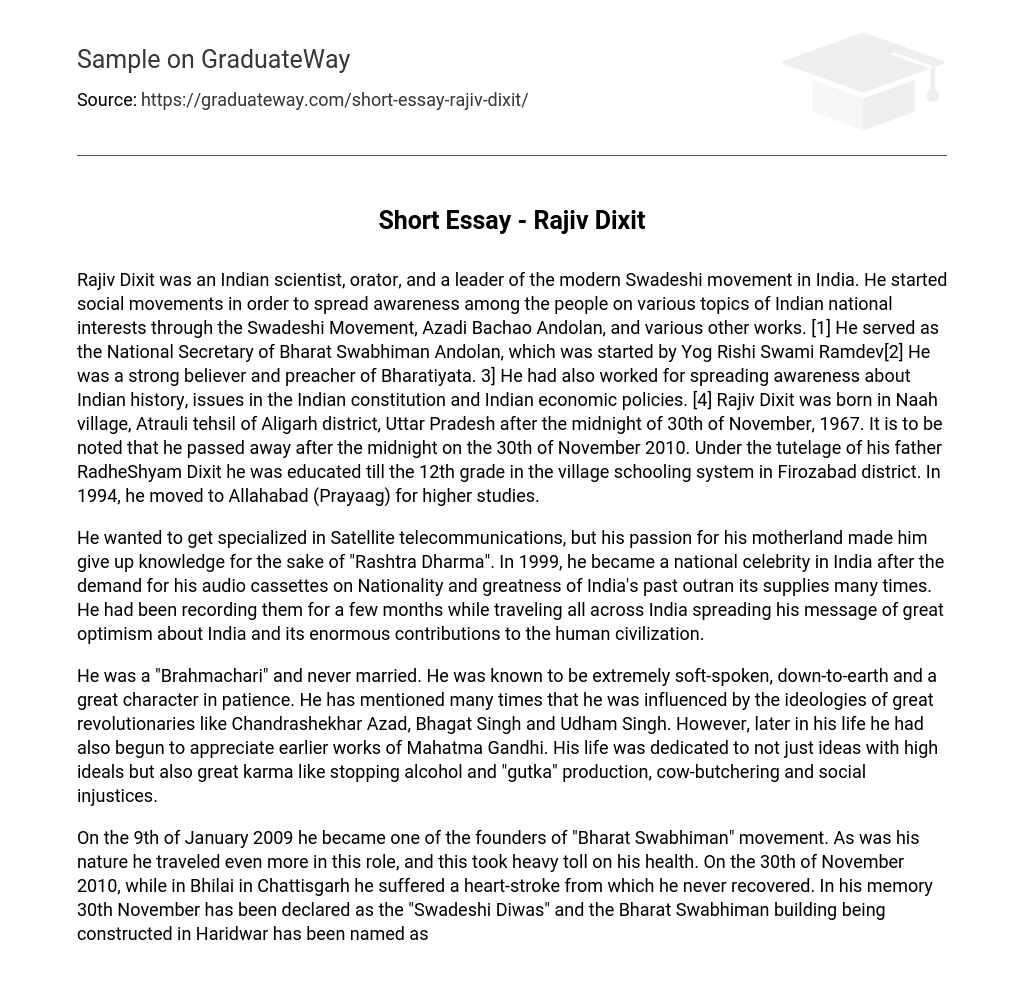Rajiv Dixit, an Indian scientist and leader, played a significant role in the modern Swadeshi movement in India. He initiated social movements to create awareness regarding various Indian national interests through the Swadeshi Movement, Azadi Bachao Andolan, and other endeavors[1]. Rajiv Dixit was the National Secretary of Bharat Swabhiman Andolan, an organization formed by Yog Rishi Swami Ramdev[2]. He strongly advocated for Bharatiyata and dedicated efforts to raise awareness about Indian history, issues in the Indian constitution, and Indian economic policies[4]. Born in Naah village, Atrauli tehsil of Aligarh district, Uttar Pradesh, Rajiv Dixit passed away on the midnight of November 30th, 2010. He received his education till the 12th grade from the village schooling system in Firozabad district under the guidance of his father RadheShyam Dixit. In 1994, he moved to Allahabad (Prayaag) for further studies.
He aspired to specialize in Satellite telecommunications, but his love for his country made him sacrifice education for the sake of “Rashtra Dharma”. In 1999, he gained nationwide fame in India when the demand for his audio cassettes on the Nationality and greatness of India’s past exceeded its availability multiple times. He had been recording them for several months, journeying throughout India and spreading his message of immense optimism regarding India and its significant contributions to human civilization.
He was a “Brahmachari” and stayed unmarried, recognized for his gentleness, humility, and remarkable patience. He frequently mentioned being influenced by revolutionary figures like Chandrashekhar Azad, Bhagat Singh, and Udham Singh. However, as he aged, he also grew to appreciate Mahatma Gandhi’s earlier works. His life was dedicated not only to noble ideals but also to impactful actions such as stopping the production of alcohol and “gutka,” preventing cow slaughter, and fighting against social injustices.
On January 9, 2009, he co-founded the “Bharat Swabhiman” movement which had a significant impact on his health due to extensive travel. Unfortunately, on November 30, 2010 while in Bhilai in Chattisgarh, he suffered a heart-stroke from which he never recovered. In honor of him, November 30 is now recognized as “Swadeshi Diwas,” and the construction of the Bharat Swabhiman building in Haridwar bears his name.





